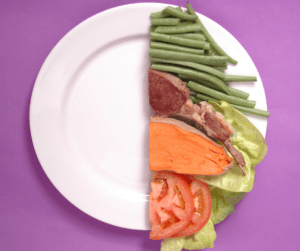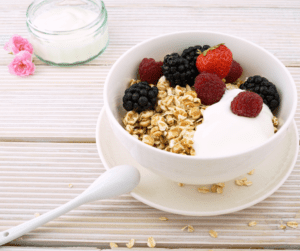It's hard enough to keep the pounds off when you're in your 20s and 30s, but when menopause rolls around, it can feel downright impossible. Between hot flashes, mood swings and weight gain, dealing with menopause can seem like a full-time job. But don't worry – there are ways to help make losing weight during menopause a little bit easier. Here are some tips to get you started.
 1. Take a multivitamin
1. Take a multivitamin
Weight gain during menopause is often the result of hormonal changes. A daily multivitamin can help fill any gaps in your diet that may be preventing you from losing weight. Talk to your doctor to find out which vitamins and minerals are best for you.
2. Exercise more
When it comes to weight loss, exercise is always part of the equation, but sometimes women just don't feel like exercising – especially when they're going through hot flashes or other symptoms brought on by menopause! If the idea of working up a sweat makes you break out in a sweat (pun intended), try starting with something less intense such as walking. Involve friends and family members so you'll stay motivated and accountable to your health and fitness goals.
 3. Try green tea
3. Try green tea
Green tea is a great source of antioxidants and can help your body fight stress, which is another possible contributor to weight gain during menopause. While you're at it, cut down on caffeine – drinking caffeinated beverages such as coffee or cola can trigger dehydration and fluid retention, making that weight even harder (literally) to lose.
4. Don't skip meals
When you're trying to lose weight, chances are you've been told time and again not to skip meals – breakfast in particular! Skipping meals slows down the metabolism and makes it more likely you'll experience cravings, later on, leading to an increase in overall calorie intake. So make sure not only to eat breakfast but to choose healthy foods such as fruits and Greek yogurt – protein will help keep you full.
 5. Control your portion size
5. Control your portion size
It's not just what you eat that can contribute to weight gain during menopause, it's how much you're eating too. When we're stressed out or exhausted, it often leads us to reach for extra food (and extra servings) as a coping mechanism. So make sure every meal and snack includes vegetables and good carbs like fruit and whole grains, and be sure to measure your portions (especially of starchy foods like bread and pasta). And remember: Even if you've had enough to eat by the time you finish dinner, resist the urge for “just a few bites” of dessert – it only adds unnecessary calories!
 6. Keep healthy foods on hand
6. Keep healthy foods on hand
When you're constantly busy and stressed, making healthy food choices might seem like too much to think about at the end of a long day (or even at the beginning!). So make it easy on yourself by keeping fresh fruit, low-fat yogurt, whole-grain crackers and other nutritious snacks right in your purse or desk drawer so that when hunger strikes, you can grab something that won't derail your weight loss efforts.
Although it may seem like losing weight is an impossible task during menopause, it can be done with a bit of effort and planning. Check out our website on how to make healthy choices during this time in your life. We wish you the best of luck on your weight loss journey!



 1. Take a multivitamin
1. Take a multivitamin 3. Try green tea
3. Try green tea 5. Control your portion size
5. Control your portion size 6. Keep healthy foods on hand
6. Keep healthy foods on hand
Leave a Reply